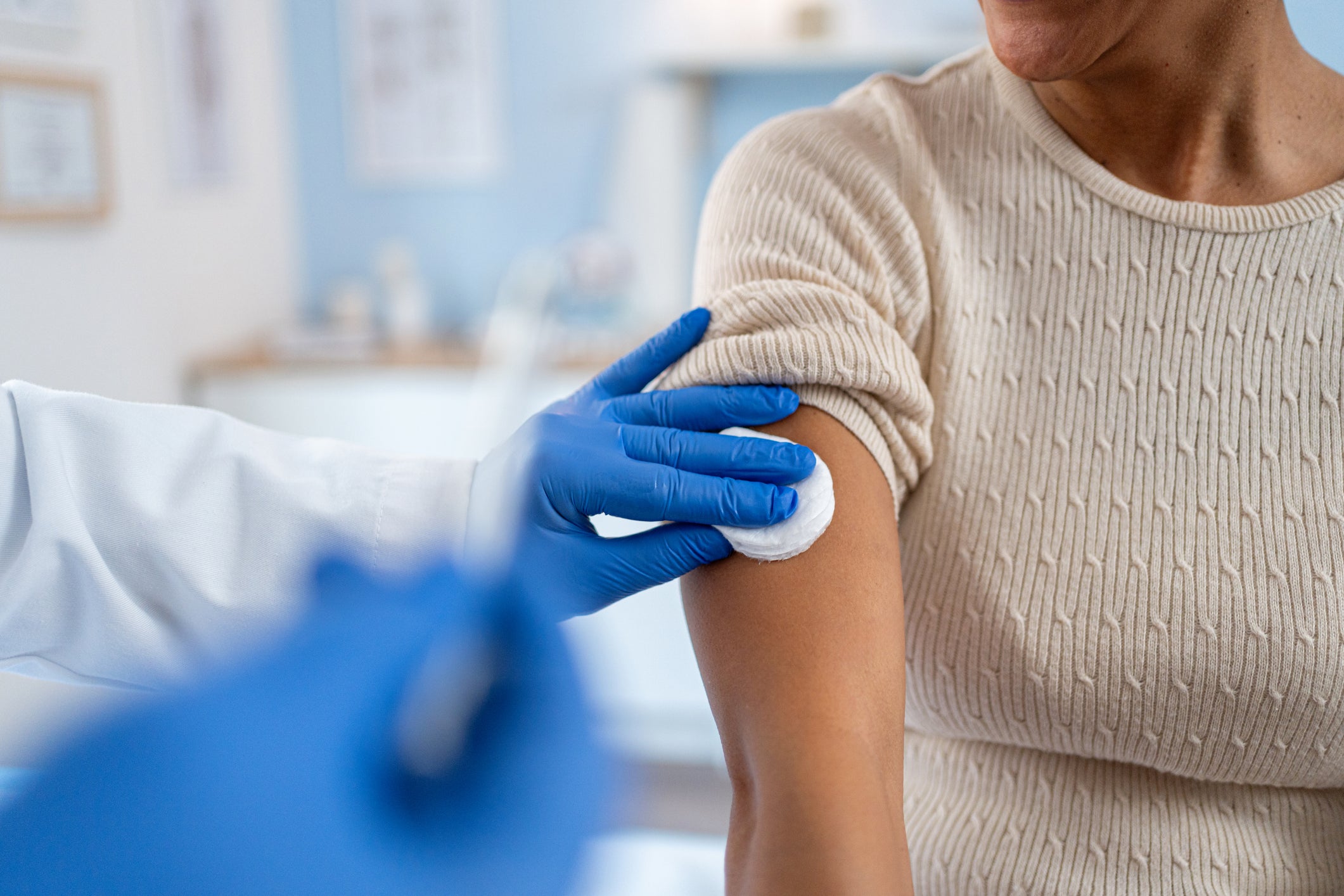‘Quad-demic’ warning: How to protect yourself against winter illnesses
“Now is the time to get protected” against winter illness, health experts say

Your support helps us to tell the story
From reproductive rights to climate change to Big Tech, The Independent is on the ground when the story is developing. Whether it's investigating the financials of Elon Musk's pro-Trump PAC or producing our latest documentary, 'The A Word', which shines a light on the American women fighting for reproductive rights, we know how important it is to parse out the facts from the messaging.
At such a critical moment in US history, we need reporters on the ground. Your donation allows us to keep sending journalists to speak to both sides of the story.
The Independent is trusted by Americans across the entire political spectrum. And unlike many other quality news outlets, we choose not to lock Americans out of our reporting and analysis with paywalls. We believe quality journalism should be available to everyone, paid for by those who can afford it.
Your support makes all the difference.People across the UK have been warned to watch out for four illnesses circulating around the country this winter. Dubbed a ‘quad-demic’ the illnesses are expected to peak as the weather grows colder.
The UK Health and Security Agency (UKHSA) is currently monitoring the four illnesses: Covid-19, flu, respiratory syncytial virus (RSV) and norovirus.
Weekly figures released by the government health authority show that cases of all these illnesses except for Covid have risen in the past week.
NHS GP Dr Alexander Allen has called the situation a “quad-demic,” and urges people to take precautions. These are “four very common viral illnesses that circulate every winter in different peaks,” he explained to Sky News.
“This is peak time so even if you are fit and healthy, your chances of catching all of these illnesses if quite high,” he says.
Dr Alexander Allen, consultant epidemiologist at UKHSA, said: “Flu is the cause of the rise in winter illnesses that we’ve seen in the past week, with emergency department attendances also increasing.
“Vaccination offers the best defense against these diseases, and now is the time to get protected before Christmas.”
Here’s everything you need to know
How to get a Covid booster jab
The following groups can book a Covid jab between 3 October and 20 December this year:
- Over-65s
- Anyone aged between 6 months and 64 years with health conditions that make them vulnerable
- Those living in care homes for older people
- Front-line health and social care staff, including care home workers
If you have not already been contacted by the NHS but are eligible, you can book an appointment via the NHS app, GPs, pharmacies, or by calling 119. Walk-in appointments are also available.
For more information about Covid booster jabs, visit the NHS website.
How to get a flu vaccine
The flu vaccine is recommended for anyone at risk of becoming seriously ill from flu. It’s offered every year by the NHS, and is free for the following groups:
- Over-65s
- Those with certain long-term health conditions
- Pregnant women
- Care home residents
- Carers for older or disabled people, or those in receipt of a carer’s allowance
- Those living with someone who has a weakened immune system
To get a flu vaccine, you can book at a pharmacy online or on the NHS app, find a pharmacy that offers it, or contact your GP to book an appointment. You must be over 18.
For those who are not eligible for a flu vaccine but still feel they want one, they can be paid for privately, usually for under £20.
For more information about the flu vaccine, visit the NHS website.
How to get an RSV vaccine
The RSV vaccine is recommended if you’re pregnant or aged 75 to 79. The NHS says all pregnant women are recommended to take the vaccine, with it helping to protect babies after they’re born.
If you’re pregnant, the NHS should contact you around 28 weeks into your term to offer you the vaccine. It’s recommended it be administered around that point, but can be until shortly before labour. You should speak to your maternity service or GP if it has not been offered.
For those aged 75 to 79, your GP surgery should get in touch about the RSV vaccine. They ask you wait until you are contacted before booking the vaccine.
For more information about RSV, visit the NHS website.
How to get a help with norovirus
Unlike the other four illnesses spreading across the country, there is unfortunately no vaccine to protect against norovirus. It one of the most common stomach bugs in the UK and can cause diarrhoea and vomiting.
It is often called the ‘winter vomiting bug’ due to its prevalence in colder weather. While it is an unpleasant illness, it does usually clear up after a few days.
Norovirus is infectious. The NHS advises that anyone with symptoms should avoid contact with others for at least 48 hours after symptoms have stopped.
Join our commenting forum
Join thought-provoking conversations, follow other Independent readers and see their replies
Comments